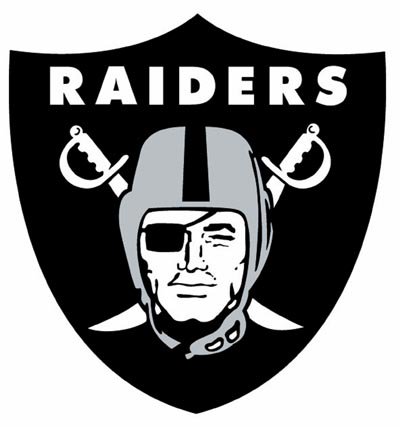The six major professional sports teams in the Bay Area employ about 70 coaches with various levels of experience. Though each has a time-consuming and challenging job, none has a task more massive than that facing Jason Tarver.
He’s trying to build a defense for the Raiders.
Not rebuild or recast. Not even overhaul. Tarver’s ambition is to construct a unit capable of succeeding after years of maddening futility during which it became a local sports eyesore, as unwatchable as the perpetually anemic A’s offense or the always porous Warriors defense.
First-year Raiders general manager Reggie McKenzie fully understood this when he hired a Denver Broncos defensive coordinator, Dennis Allen, as head coach.
Allen – the team’s first head coach with a defensive background since John Madden resigned 34 years ago – was acutely aware of it when he sought a defensive coordinator.
He landed upon Tarver, a 1993 graduate of Foothill High in Pleasanton, Calif. This 37-year-old, with the sandpaper voice of a 37-year coaching veteran, becomes the Raiders’ first autonomous D.C. since 1963.
That’s when Al Davis arrived as head coach, G.M. and unofficial co-D.C. Even as Davis ascended to owner, he remained deeply involved with the defense. His death last October precipitated a franchise overhaul, resulting in Tarver having the authority to coach as he desires, with input from Allen.
“What makes a great coaching staff is the daily communication with the players to get the right execution on the field,” Tarver says. “When you build it from the start – from head coach to defensive staff to players, with everybody knowing why – and you progress from there, the answers come quicker.”
Tarver says the Raiders will use multiple fronts. Expect more blitzes, something Davis was reluctant to do. The first priority, though, is to become more cohesive than those old Oakland defenses infamous for allowing big plays, blowing big leads and finishing among the NFL’s bottom 10 run defenses for nine consecutive seasons.
The Raiders last season, despite all the injuries that befell the offense, might have won 10 games with an average defense, 11 or 12 with a good one.
“Those things are so far in the past for us . . . all we know is what we do every day,” Tarver says. “It’s about what we do together as a defense. It’s about what we establish as a culture. It’s about what we do from here forward.
“My brain remembers the numbers, but it’s not a part of our daily process.”
Tarver is a tightly wound bundle of kinetic energy, with an array of voice intonations and facial expressions. These characteristics, along with his body type, are reminiscent of former Raiders coach Jon Gruden.
And, as Gruden did with the team upon his arrival, Tarver hopes to implement an altogether different mentality within his unit, with greater accountability.
We’ve heard this before, of course. And we’ve seen it flop year after year, whether the D.C. was Rob Ryan or John Marshall or, last year, when Chuck Bresnahan was summoned for second stint in the role.
“All we’re going to do is establish our system, learn how to play the way we want to play, the way coach Allen and the rest of us want these guys to play,” Tarver says. “And they’ve been great with us at trying to do that.”
Most defensive players are expressing faith in the new direction. Just as Allen was popular with his defense in Denver, Tarver was a well-liked assistant at previous stops, notably a decade with the 49ers before spending last season at Stanford.
Those jobs, however, were more specialized and also a lot smaller, with much less responsibility and minimal spotlight.
If there is one constant with successful NFL coordinators, in addition to having talent, it’s the ability to coach through an individual, someone who is productive and has leadership skills. With offensive coordinators, it’s almost always the quarterback. With the D.C., it’s usually an inside linebacker.
With Tarver in Oakland, that means middle linebacker Rolando McClain, who was drafted eighth overall in 2010 to bring those attributes. He has thus far not delivered.
“We only know what he’s done (since we arrived), what he does when he’s here, how he represents himself around his teammates and how he represents the Raiders from this point forward,” Tarver says. “Does he have ability? Heck yeah. Are we excited? Sure. Let’s see what he can do with that ability from here forward.”
No player will have more impact over the fortunes of the defense. A productive, exemplary McClain – and he has been the opposite of that – should bring a dramatically improved unit. Otherwise, Tarver can expect a four-month migraine.
“It’s a blank slate,” he says. “That’s what it is. That’s really where we are. And that’s what exciting about it for us, for the players and for the fans.”
The defense always is a blank slate in the spring, and it routinely became a void once the season started. Davis took some blame, and deserved at least a share.
Now it’s up to Tarver. If he can’t get it done, the blame stays within the building. But it moves to a smaller office.
———
© 2012, The Oakland Tribune (Oakland, Calif.).
Visit The Oakland Tribune on the Web at http://www.insidebayarea.com/oaklandtribune/
Distributed by McClatchy-Tribune Information Services
Distributed by MCT Information Services








